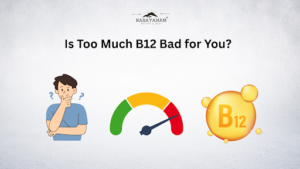An ophthalmologist can recommend LASIK eye surgery to correct your vision and eliminate the use of contacts or glasses. You may be an excellent candidate for this procedure if you don’t have dry eyes and you’re healthy. LASIK can be an easy procedure that requires minimal healing time.
What Is LASIK?
LASIK is a procedure that can reshape your cornea to correct refractive errors. This procedure can manage the following vision problems:
- Nearsightedness (myopia): This occurs when the eyeball is longer than normal or when the cornea curves sharply, resulting in blurry distant vision. With these two eye problems, you can see objects that are close clearly, but not those that are far.
- Farsightedness (hyperopia): This happens when the eyeball is shorter than normal and the cornea is flat, leading to blurry near vision. Hyperopia can make you see objects that are far more clearly, but those close to you are difficult to see.
- Astigmatism: This results from a curved or flattened cornea that disrupts distant or near vision.
What to Expect During LASIK
On the day of your LASIK procedure, you might need to forego cosmetics since they can leave debris in your eyes. Avoid using the following personal care items to prevent chances of infection:
- Makeup
- Eye cream
- Facial lotion
- Perfume
Keep your eyes clean and hydrate sufficiently for a successful procedure. You can wear comfortable clothes that you can easily move around in. Here are things you can expect during a LASIK procedure:
Eye Cleaning
Your surgeon can clean your eyes and eyelashes some minutes before surgery. This process removes any debris or residue that can affect LASIK and infect your eyes. A professional can request you wash your face to get rid of any contaminants.
Eye Numbing
LASIK might not require general anesthesia since it tends to be a painless procedure. An ophthalmologist can use anesthetic eye drops to numb your eyes. These eye drops help reduce sensations of pressure during surgery and manage discomfort. A professional might give you medication to control pain and help you relax.
Preparing Your Eyes
After applying numbing drops, an ophthalmologist uses an eyelid holder to keep your eyes open. This expert can place a suction ring to prevent your eyes from blinking and keep them steady during surgery. You might feel minimal pressure in your eyes and your vision might be dim.
Incision
An experienced surgeon uses a laser to make an incision in the outside cornea. This laser device allows a team of experts to access the cornea part that needs reshaping. With this type of laser, you can expect enhanced precision and a quick procedure.
Shaping
The laser emits calibrated beams that can reshape your cornea, depending on your vision issue. You might hear a clicking sound and an ophthalmologist can ask you to focus on the light. During this stage, you might need to remain still and avoid eye movement since the device can shut down when you move.
The laser can produce a smooth surface in your cornea and minimize the risks of complications. This laser technology can offer you better results because it optimizes small spot beams.
Closing Up
Once the lasers have reshaped your cornea according to your eye configuration, a surgeon can close up the flap. This flap in your cornea can reattach itself and heal after some time. An expert can give you protective glasses to prevent you from rubbing or scratching your eyes.
Aftercare
After surgery, your eyes may be sensitive to light, so glasses can keep you comfortable and safe. You might need someone to drive you home after LASIK surgery because your vision might be blurry. Take some days off of work and exercise to help you recover and get back to your routine. An ophthalmologist follows up on your case after a couple of days and tests your vision to determine whether the procedure was successful.
Get Quality LASIK Eye Surgery
After successful LASIK eye surgery, you might see clearly without contact lenses or glasses. Skilled ophthalmologists use high-end laser technology to help restore your vision within a reasonable period. With the right laser, the procedure can be painless, and you can recover within a short time. Quality LASIK with the use of advanced technologies can offer you great results. Find a reliable ophthalmologist to perform LASIK surgery and improve your vision.









Be First to Comment